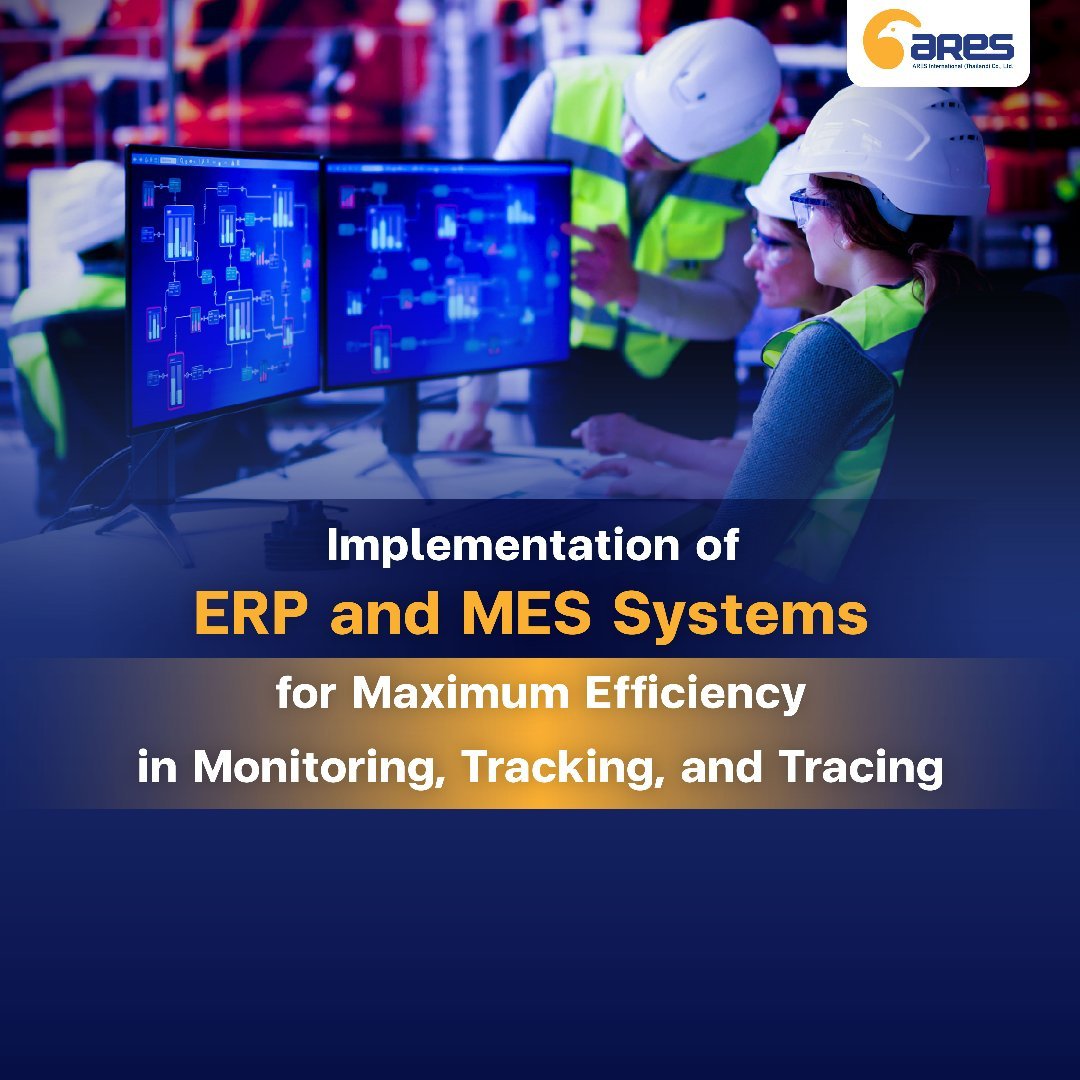[Knowledge] How currently worth to investing in Smart Industry?

Investing in Smart Industry: How worthwhile is it, and why are both small and large companies interested?
The rapid transformation in manufacturing over the past decade has necessitated swift adaptation for businesses to remain globally competitive and meet future demands. Integration of digital technologies into production processes and management has significantly enhanced manufacturing efficiency.
It is during this period that Smart Industry has emerged to revolutionize conventional manufacturing processes into intelligent operations, impacting accuracy, precision, speed, and long-term cost reductions. This trend continues to gain popularity and relevance in today's industrial landscape.
What is Smart Industry?
Smart Industry refers to the integration of digital technologies with automated systems, deep data analytics, and analysis to transform traditional manufacturing processes, enhancing efficiency and flexibility in both production and management across all industries.
The application of Smart Industry encompasses a variety of technologies such as automated machinery, IoT data and network connectivity, robotics, sophisticated software, and detailed data processing including Big Data Analytics, ERP, MES, and Machine Learning.
How worth to invest in Smart Industry?
How worthwhile is investing in Smart Industry in the current context? Investing in Smart Industry represents a significant decision for businesses as it fundamentally reshapes overall operations. Notably, statistics from marketsandmarkets.com indicate a compelling market trend for Smart Industry and Smart Manufacturing, projecting growth from USD 108.9 billion in 2023 to USD 241 billion by 2028 globally, underscoring its increasing popularity.
Furthermore, there is a rising trend in the adoption of various technologies such as AI in manufacturing sectors, both domestically and internationally. The advancement of AI technology has proven highly effective, demonstrating the enduring value and benefits of Smart Industry.
Benefit of Smart Industry
-
Efficient Collaboration
Through the processes and systems employed in Smart Industry, effective communication among various departments becomes faster and more convenient. For instance, online collaborative platforms enable employees, including management, to share information or track real-time progress on dashboards. -
Enhanced Competitive Edge
The growing capabilities of digital technologies play a crucial role in enhancing the competitive edge of factories across industries. Early adopters gain a comparative advantage as these technologies bolster weaknesses, improve operational efficiency comprehensively, and swiftly adapt to rapidly changing market demands. -
Unlimited Space and Time
Digital technologies in Smart Industry revolutionize traditional manufacturing by leveraging portable devices such as PDAs, scanners, tablets, and smartphones to access real-time production management data without constraints of physical space, environmental conditions, or time. -
Reduction of Human Errors
Digital technologies applied in manufacturing significantly enhance accuracy, reducing human errors in various aspects such as data verification, operations, issue identification, performance measurement, and more. Systems for tracking and verifying inventory, raw materials, and components help prevent errors in picking, placement, or delivery.
The Factor Consideration Before Using Smart Industry
-
Alignment with Overall Business Strategy
Does Smart Industry align with the organization's short, medium, and long-term business strategies? -
Internal Readiness Assessment
Evaluate internal readiness within the organization or factory. If stakeholders are not prepared or resistant to change, implementing changes across all aspects—tools, resources, personnel, and others—will be challenging. -
Budget Adequacy
Assess the budget availability for investing in Smart Industry. Determine whether the funds are sufficient for small-scale, medium-scale, or large-scale systems. Additionally, evaluate the phased investment approach over a specified timeframe. -
Identifying Existing Problems
Identify existing organizational challenges or operational inefficiencies. Clear identification facilitates easier solution finding and expert advice, the more detailed the problem description. -
Selecting Reliable Service Providers
Choose trustworthy and experienced service providers, such as reputable brands or those with successful case studies, to ensure reliable implementation and support.
For any uncertainties or questions, feel free to seek consultation from ARES experts, who are ready to assist and provide guidance across all industries.
Main Technologies To Drive Smart Industry

Because technology serves as the backbone of systems, playing a crucial role in driving various manufacturing and operational processes, let's explore the key technologies that drive Smart Industry.
MES System or ciMES by ARES

ARES's MES (Manufacturing Execution System), known as ciMES (Computer Integrated Manufacturing Execution System), is widely adopted in the manufacturing industry. ciMES functions to connect with machinery or facilitate data exchange during operations, collecting and transmitting data to process controllers. This capability enables comprehensive oversight and control of manufacturing processes within the factory, from inception to completion. For instance, it manages order planning, calculates materials requirements, collects data, and monitors production quality. This system is instrumental in guiding manufacturers towards Smart Industry, enhancing production efficiency, and achieving long-term cost reductions comprehensively.
ARGO ERP System

ARGO ERP system is software that aids in managing organizational resources across finance, production, sales and marketing, inventory management, and organizational structure. It reduces redundant processes in management by consolidating data from all parts of the business, addressing detailed production needs, enabling clear and real-time monitoring of operations via web browsers or mobile phones. Moreover, it empowers managers to make precise and swift decisions to resolve issues, enhancing overall efficiency and competitive capabilities in rapidly changing markets.
IoT (Internet of Things)

IoT (Internet of Things) is a technology that plays a crucial role in driving Smart Industry, enabling machinery and various devices to connect to the internet and exchange data. This capability facilitates rapid and accurate collection of production process data, such as monitoring machinery status, sensor measurements, and real-time data retrieval.
Big Data

Big Data, or large-scale databases, harnesses technology to analyze accumulated data over extended periods. The increasing number of interconnected devices continuously generates vast amounts of data, which proves beneficial for users capable of analyzing this data. It helps businesses identify weaknesses and enhance the quality of products and manufacturing processes to better meet customer demands.
Moreover, Big Data analysis enables businesses to discern market trends and efficiently adjust marketing strategies. It also aids in developing appropriate production plans and managing resources effectively.
Cloud Computing

Cloud Connectivity and Cloud Computing in the context of Smart Industry enable users to easily, conveniently, and swiftly access necessary system resources for Industrial Internet of Things (IIoT). These resources include IIoT data, data analytics tools, and process automations through various wireless networks such as Wi-Fi or 5G.
Machine Learning

Artificial Intelligence (AI) plays a crucial role in leveraging data within manufacturing sectors, utilizing advanced analytics techniques and capabilities to manage and blend diverse large datasets. This enables the transformation of massive data into useful insights, which are essential for managing factory operations and continuous process improvement.
Conclusion of Smart Industry
Digital technology is revolutionizing business operations across all industries, ushering in profound changes in every sector. Therefore, businesses should strategically plan and be prepared to integrate digital technologies to stay competitive with emerging technologies and fully embrace the era of Smart Industry.
ARES is committed to helping businesses achieve their goals of becoming Smart Industry leaders by enhancing operational efficiency in manufacturing processes, reducing costs, and increasing competitiveness. This is achieved through state-of-the-art solutions such as Argo ERP and ciMES MES systems, supported by comprehensive services from our team of experts.
Contact us
For a demo, please contact us at Contact Us or for further inquiries:
Phone: 0633253640 or 02-6863000 ext. 3042
Email: support@aresth.co.th




